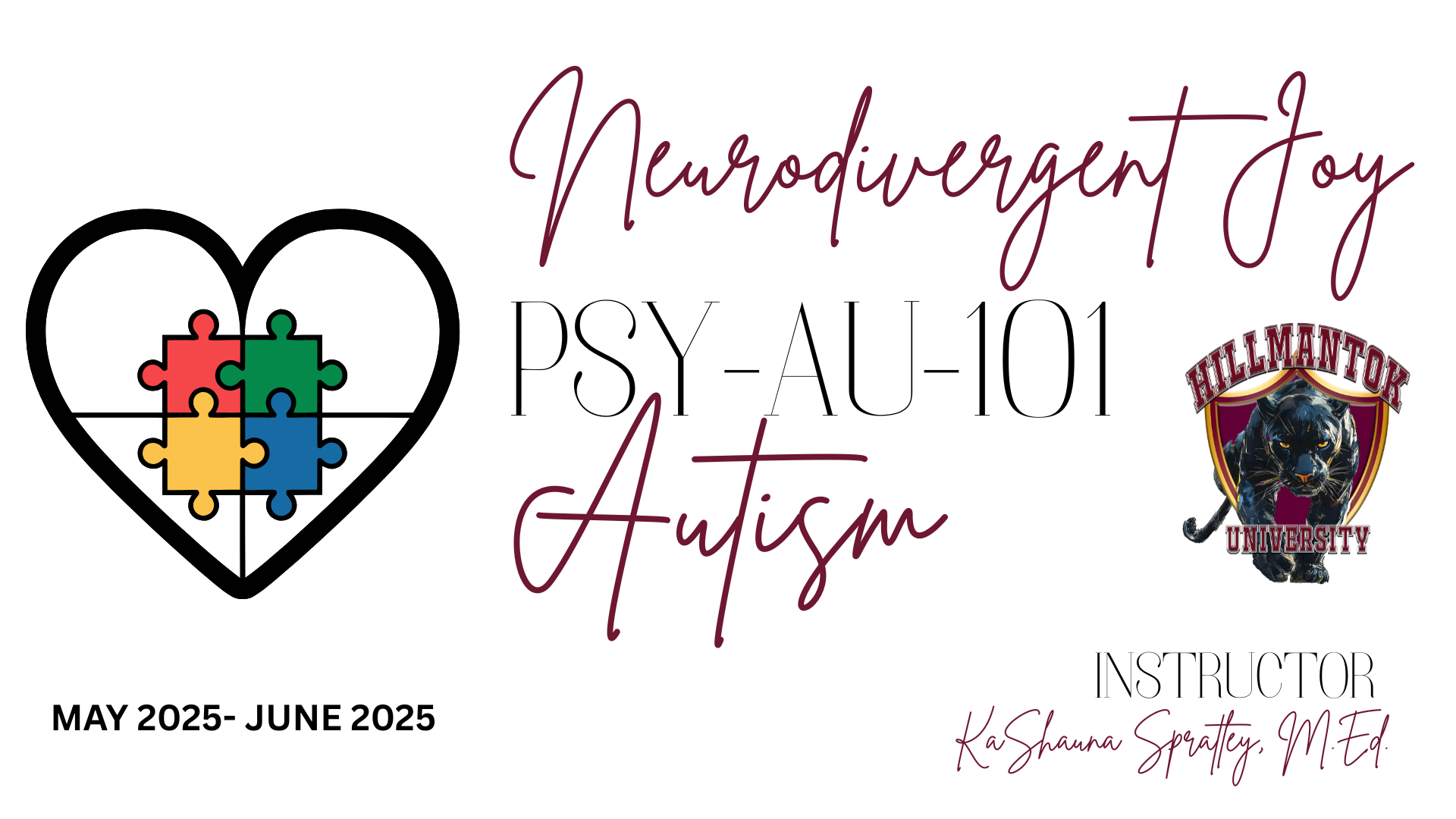
About Lesson
This syllabus serves as a clear and comprehensive guide for students enrolled in PSY-AU-101 Autism: Neurodivergent Joy at Hillmantok University. It outlines the course objectives, weekly topics, required materials, and expectations for participation and assessments. The syllabus is designed to support students in navigating the course with confidence, helping them understand the structure, pacing, and learning outcomes they can expect to achieve. By providing this roadmap, the syllabus ensures that all students—regardless of their background or experience with neurodivergence—are equipped to engage meaningfully with the content, apply it to real-life contexts, and advocate for themselves and others in both academic and personal settings.
Exercise Files